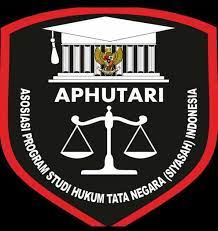Konsep Negara dan Relevansi Terhadap NKRI Perspektif Emha Ainun Nadjib
DOI:
https://doi.org/10.15642/ad.2018.8.2.278-295Keywords:
Concept of the Country, Cak Nun, IndonesiaAbstract
State and power are two things that cannot be separated from one another. Substantially, both have the main purpose of creating prosperity for the people. In fact, the Indonesia's democratic system seems to be imperfect. Therefore, it needs to have reorientation and revitalization of the concept in its implementation. The thought of Muhammad Ainun Najib (Cak Nun), in this context, is an alternative offer, such as; first, there is a distinction between state institutions and government institutions, between the head of state and the head of government, for the sake of creating political stability and the administration of the good governance; second, the criteria of a leader need to have scientific quality that is not only knowing issues of the personal and group interests, but also understanding in detail about the life of the regions; third, Indonesia should have five national pillars such as people, Indonesian National Army (TNI), intellectuals, customs and culture, as well as spiritual powers. Those five pillars are supposed to support the upright and the solid state of the Republic of Indonesia.
Downloads
References
Assegaff, Zaman Keemasan Soeharto, Jakarta : Kompas, 2013.
Bai, L. Monetary Reward Versus the National Ideological Agenda: Career Choice among Chinese University Students. Journal of Moral Education, 27(4), (1998). 525-540. http://dx.doi.org/10.1080/0305724980270406
Berkowitz, M.W. Educating for character and democracy: A practical introduction. Inucci Morall’d articles (pp. 1-14). 1998.
Buletin Mocopat Syafa’at, Edisi 78, 17 desember 2014 – 17 januari 2015.
CST. Kansil, Hukum antar Tata pemerintahan, Jakarta : Erlangga, 1987.
Effendy, Bachtiar. Islam and the state in Indonesia. Singapore: Institute of Southeast Asian Studies. 2003.
Erianto, Analisis Wacana (Pengantar analisis teks media, Yogyakarta : LkIS, 2006.
Feith, Herbert. The decline of constitutional democracy in Indonesia. Ithaca: Cornell University Press. 1962.
Latif ,Yudi dan Idi Subandi Ibrahim, Bahasa dan Kekuasaan Politik Wacana di Orde Baru, Bandung : Mizan, 1996.
Mansoer, Tolchah, Moch., konsep Dasar Islam tentang Negara, Purworejo; PTII, 1997.
Mietzner, Marcus. Military Politics, Islam and The State in Indonesia: from Turbulent Transition to Democratic Consolidation. Singapore: Institute of Southeast Asian Studies, 2009.
Nadjib, Ainun, Emha, Jejak Tinju Pak Kyai, Jakarta : Kompas, 2009.
Nadjib, Ainun, Emha, Secangkir Kopi John Parkir, cet. VI Bandung : Mizan, 1996.
Nadjib, Ainun,Emha, Kiai Sudrun Gugat, Bandung : Mizan, 1995.
Nadjib, Ainun,Emha, Opini Plesetan, Bandung : Mizan, 1995.
Sheehan, Michael, The Balance of Power: HistorTheory, London: Routledge, 1996.
Sukma, Rizal. ‘Insight: Debating Indonesia’s Global Role’. Jakarta Post. Thursday, 11 March 2010.
Sukma, Rizal. ‘The evolution of Indonesia’s foreign policy: an Indonesian view’. Asian Survey, 35 (3) (1995). 304–315; URL: http://www.jstor.org/stable/2645547 Accessed: 06/06/2018 00:53
Weinstein, Franklin B. Indonesian foreign policy and the dilemma of dependence. Ithaca: Cornell University Press. 1976
Wirosardjono, Soetjipto, Dialog dengan Kekuasaan,, (Bandung : Mizan, 1995).





